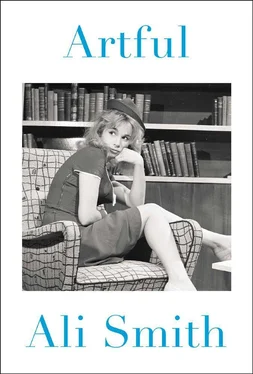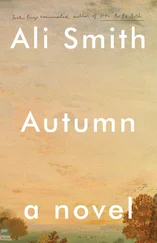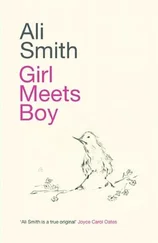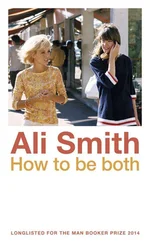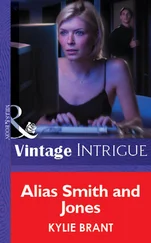And, give or take a bit of give and take, it’s always all about continuance. This is Colette, from The Pure and the Impure (translated by Herma Briffault): ‘Amalia X, that good comic actress of road companies who died at the beginning of the war…if one were to believe her, had not hesitated to leave a sleeping and satiated sultan and go on foot, veiled, through the night streets of Constantinople to a hotel room where a sweet, blonde, and very young woman was waiting up for her…’ In this anecdote Colette sums up almost casually (though Colette wrote nothing without deliberation, without performative poise) the ways that giving the self and telling a good story might not just be related to each other but both have roots in notions of belief, or suspension thereof.
Has giving, since the first gift of the apple, always been a matter involving purity, impurity, issues of permissibility? Here’s a slightly more contemporary French story, from Philippe Lioret’s 2009 film, Welcome, where a young Kurdish illegal immigrant from Iraq, trying to reach his girlfriend in London, gets himself as far as Calais. Twenty-one miles of Channel divide him and his destination, with no way he can smuggle himself in. So he starts taking swimming lessons locally. His French swimming instructor befriends him. The friendship is as illegal as inviting an illegal immigrant into your home is, in Calais, in the year 2009. We are living in times where, very close to home, hospitality is punishable by law.
Boris Pasternak, via his translator Edwin Morgan in the poem The Wedding Party, sees giving the self as the way in which we wed the world, the way we simultaneously free ourselves and commit ourselves:
Life is only a moment, life too is only a dissolving
of ourselves in all others as by an act of giving:
only a wedding’s gladness thrilling up through a window,
only a song, only a sleep, only a slate-gray pigeon.
Casanova puts it this way: ‘the greatest exhilaration to my spirits, greater than all my own pleasure, was the joy of giving pleasure to a woman.’ EM Forster, though, saw it a little more evenhandedly: ‘when human beings love they try to get something. They also try to give something, and this double aim makes love more complicated than food or sleep. It is selfish and altruistic at the same time, and no amount of specialization in one direction quite atrophies the other.’
Forster’s vision of love here, a combination of generosity and canniness, sounds like what Jan Verwoert thinks of the nature of all offerings in his recent article about the ethics of profanity. Referring to Giorgio Agamben’s 2007 essay In Praise of Profanity, he says:
in antiquity, ritual sacrifice would entail a portion of the sacrificial gift to the gods (e.g., parts of an animal) being returned to the community as a profane share (e.g., free food) to be enjoyed by all, as an earthly thing which retained a trace of the divine. (It’s like true irreverence, which always has love at the heart of it.) So value resides neither in the divine nor the profane but is manifested in the dynamic relation between the two. Capitalist society, Agamben argues, nullifies this dynamic. When there is a price on everything, all is similarly worthy and worthless. The challenge is to revive the free interplay between profanation and veneration through anarchic practices that affect the motion and emotion of meaningful differences coming into being.
The challenge is to understand the real meaning and worth of all that glisters, golden calf, golden bowl. But the line of Verwoert’s that tickles most here (a throwaway irreverent line, in parentheses) is the one about true irreverence always having love at its heart.
In Colette’s story, it’s apt that the pure/impure lover-and-giver crossing the city in the night, dead at the start of the story then brought to rich, luxuriant life by Colette choosing to tell it, is a ‘good comic actress of road companies’ (NB too, to tell is also a verb that means to count, particularly to count coins; that’s why bank tellers are called tellers). The comic form and concepts of anarchy, irreverence, luxury, rags-to-riches, are connected to concepts of generosity and transformation.
The resolving force of coincidence, the generosity in the workings of Dickens’s plots, comes straight down the line from Shakespeare’s comedies, backed by the source of Shakespeare’s most powerful forms of magic and coincidence in his late plays, Cymbeline, The Winter’s Tale, The Tempest, plays that fuse category to defy category, where tragedy and comedy coexist, fight it out, resolve in forms of uncanny rebirth, findings of those who were lost and restorings of the dead to life, usually via a display of working artifice.
Shakespeare’s late plays love and exalt the poor, whose comic literary ethos, over the centuries, takes the form of sharing, inclusion, and hospitality, from the taking in and rescuing of the abandoned baby in The Winter’s Tale to the taking in and bringing up to lives of comic thievery of lost boys which forms the employment of the markedly much more comic creation of Fagin in Lionel Bart’s 1960s stage musical.
In Carol Reed’s 1968 film version of this musical, Fagin is played by Ron Moody as practically benign, a much more generous, much less threatening and doomed creation than Dickens’s original, in a London whose comic commoner ethos, so long as ‘nobody tries to be lah-de-dah or uppity,’ is that ‘there’s a cup o’ tea for all,’ a twentieth-century mockney first cousin to the cup o’ kindness Robert Burns proffers in Auld Lang Syne, the song where old friends, long parted, promise hospitality to each other infinitely. Auld Lang Syne is the closest thing to a worldwide ritual of well-wishing we have — a New Year song that holds the worth of the past and all kind hopes for the future in the exchange of hands. The word kindred and the word kind are related; the words for kindness and family have etymology in common.
‘O wad some Pow’r the giftie gie us / To see oursels as others see us!’ That’s Burns too, in To a Louse, a satire addressed to a louse making its way across the bonnet of a lady in a church, a lady who thinks herself finer than she is, in a world where riches and rags are both a kind of fodder. Arguably some mischievous god heard Burns and granted this wish to our culture: blessed, we are, with the gifts of celebrity, surveillance, and reality tv. O wad some Pow’r the giftie gie us to act like Chaplin, irreverent, anarchic, empathetic, the most world-famous and the richest by far of the comic actors of road companies. No stranger to poverty, he played it playfully, as a state in which real richness is having finesse, delicacy, and generosity when you have nothing else; typically, as David Robinson records in his critical biography, looking out of a window with his two small sons, Chaplin ‘would train a telescope on some far-off pedestrian’ and tell them, ’You see that man? He must be going home after a day’s work. Look at his gait, so slow, so tired. His head’s bent. Something’s on his mind. What could it be!’
This is part empathy, part thievery. Empathy, in art, is art’s part-exchange with us, its inclusivity, at once a kindness, a going beyond the self, and a pickpocketing of our responses, which is why giving and taking are bound up with the goods, with the gods, with respect, with deep-seated understanding about the complex cultural place where kindness, thievery, bartering, and gift-giving all meet, make their exchanges, and by exchange reveal real worth. We are what we give. ‘To give, it is a witty thing,’ Ovid says, via Christopher Marlowe’s translation of Elegies of Love. Actually Marlowe’s whole line is: ‘(Trust me) to give, it is a witty thing.’ Exchange is dialogue (and that includes the exchange between Ovid and Marlowe, the dialogue that the translation represents). But more — in this single line the verb to give is held between two opposing notions. Being a witty thing , giving is about knowledge, about knowing (these are some of the synonyms for wit). But before you even get to giving, something must be taken — on trust —and this is where the exchange becomes to do with an act of faith in something beyond you. (Trust me.)
Читать дальше
